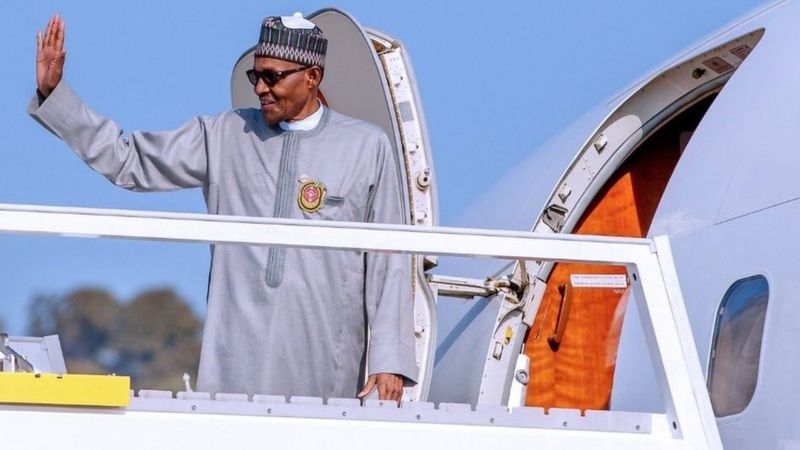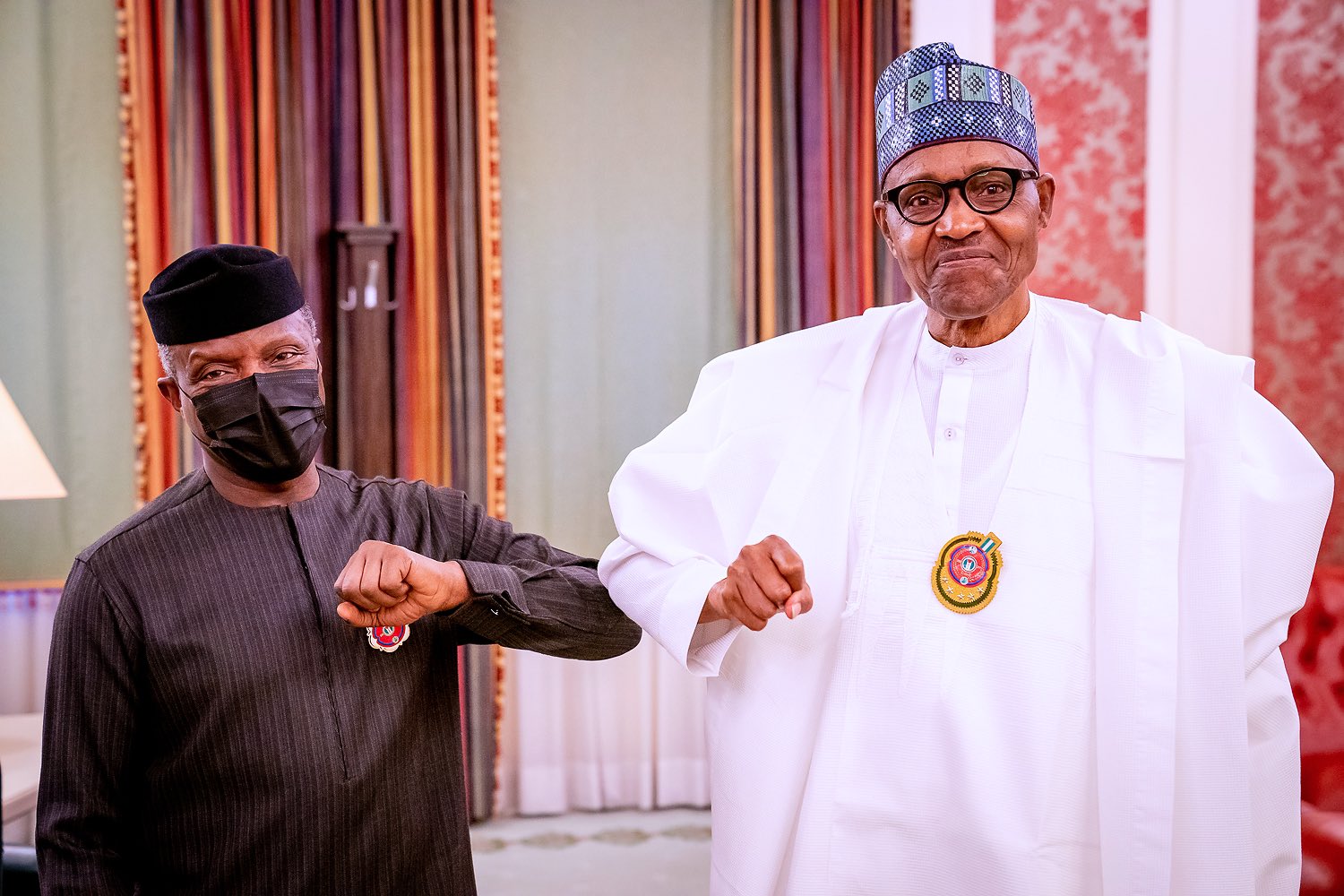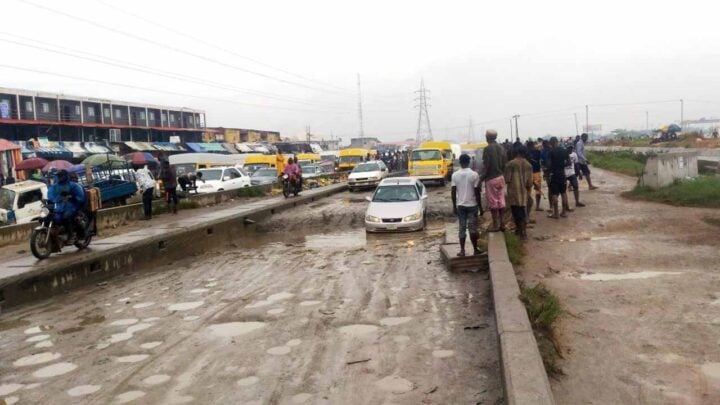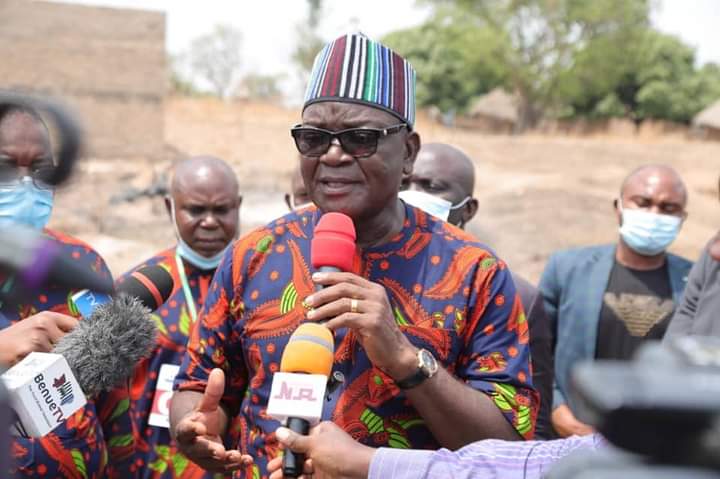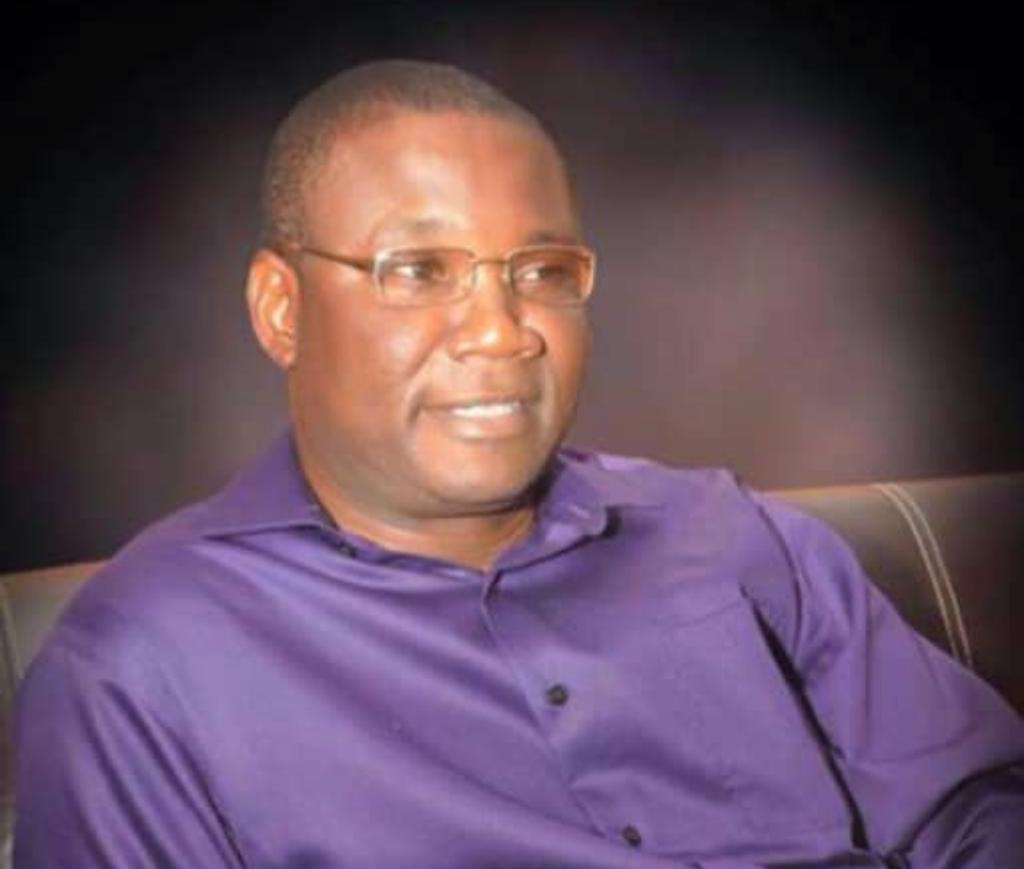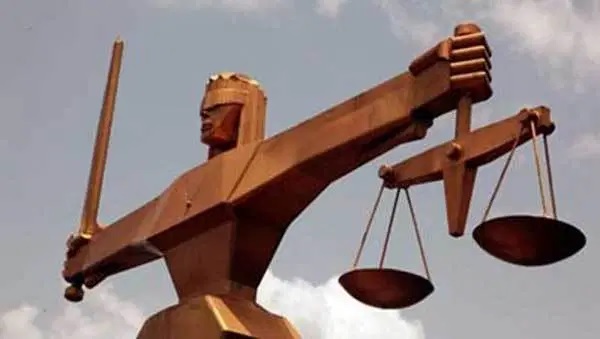The President Is A Sick Man is the title of a book written by Philadelphia-born award-winning American journalist, Matthew Algeo. It is a chronology of the medical travails of President Grover Cleveland, lawyer, statesman, and one of the most famous public speakers of his time. Cleveland was the 22nd and 24th president of the United States of America, from 1885 to 1889 and 1893 to 1897. The book chronicles how inexorably linked the health of a president and the health of the nation are.
Cleveland was America’s first and only two nonconsecutive-terms president in history. He was also the first Democrat to become the American president in 28 years. Famously renowned for always speaking the truth, he was regarded as a very virtuous man, so much that his most memorable quotation, ramped up into a cliché, was “Tell the Truth.” Like Nigeria’s Muhammadu Buhari whose minders ingenuously chiseled out an alias, Mai Gaskiya, of out of his simple lifestyle which, unbeknownst to the generality of Nigerians, was a façade that covers gross latitude for egregious corruption by the people who surround him, America was later to find out that, wrapped up inside that Cleveland shawl of “telling the truth” was the most untruthful cover-up in American history, far more scandalous than Watergate. What revealed Cleveland’s real persona was his battle with mouth cancer and an extraordinary, even if political cover-up of this infirmity that lasted almost a century, garnished with a successful attempt to keep it from the American people.
Cleveland had assumed the American presidency on March 4, 1885, as the second bachelor president in her history, after James Buchanan. Critics called Cleveland debauched, due to his penchant for “bringing his harlots to the vicinity of the White House.” However, on July 1, the summer of 1893, Cleveland suddenly disappeared from the radar and couldn’t be found anywhere in the White House. Or anywhere in America. It was a challenging time when America was embroiled in what newspapermen labeled, in oblique vernacular, “The money question.” America was teetering on the brink of financial and social chaos. The economy was threatening to kiss the canvass; unemployment figures were competing with the firmament in height; banks and factories were shutting their gates with reckless abandon and stock prices were in a free fall.
On May 5, 1893, two weeks shy of his 56th birthday, the second day of his swearing-in at the Capitol for a second term, Cleveland noticed a rough spot on the roof of his mouth which, by the prodding of his wife, Frances, prompted the invitation of the president’s friend, New York surgeon and Cleveland family physician, Dr. Joseph Decatur Bryant, to look it up. Bryant diagnosed oral tumour, malignant in nature, “an ulcerated surface with an oval outline about the size of a quarter of a dollar.” He called it a “bad looking tenant” that should be evicted post-haste.
Advertisement
Right from the 5 BC, cancer had garnered the notoriety of the most dreaded disease in human history. America of the 19th century was no exception, nor President Cleveland himself. He was thoroughly afraid. The dread was such that, even Greek physician of the Age of Pericles, Hippocrates, also known as Hippocrates of Kos or Hippocrates II, who was renowned to be one of the most outstanding personalities in medical history, was quoted to have urged that “It is better not to apply treatment in the cases of occult (internal) cancer; for if treated, the patients die quickly; but if not treated, they hold on for a long time.” The fear was that, if the cancer afflicting Cleveland had gone into metastasis, the lower part of his left eye socket would be removed during surgery and thus permanently impairing his vision.
On July 1, 1893, President Cleveland got lost inside the Oneida, his friend, Commodore Elias Benedict’s yacht. For five good days, he was declared missing. William Williams Keen, America’s most famous and celebrated surgeon of the time and a team of other surgeons, performed the surgery to remove the cancerous tumor that had grown dangerously and embarrassingly on the president’s upper jaw and palate. The most shocking aspect of it was that, one very enterprising newspaper reporter, E. J. Edwards, later got the information and reported the secret surgery. Cleveland’s Garba Shehus descended on the journalist with the highest acerbity ever. They even labeled him “a disgrace to journalism.” It was not until decades later that one of Cleveland’s surgeons exposed the startling disappearance.
I told this long story so as to be able to bring the Nigerian and African experience of the Cleveland disease – not the disappearance per se but the stunt of keeping ailments out of the people’s klieg by elected presidents, in focus. While some may argue that the Cleveland covert surgery legitimizes many similar equations in Africa, the fact that this happened in America, in the “dark age” of the 18th century, delegitimizes such argument.
Advertisement
Drawing shawls on the health status of African leaders today while they suddenly disappear to undertake their own surgeries inside Cleveland’s type Oneida yacht has a history behind it. It is the mentality of continuation of the great empires and monarchies of Africa where kings were perceived to be infallible, super-human and incapable of falling prey to the afflictions of plebeians and common people. African leaders, seeing themselves in the same mould of kings and emperors, believe that they must not be heard having failing health, nor their health status made public. In what other way can it be said to them that, no matter one’s status in life, no one is immune to death and health failings? This trend that I call the Kabiyesi mentality, has bred a pandemic of leaders of Africa who, almost like 19th century Cleveland, “abdicate their thrones” covertly to seek remedies abroad, without the knowledge of their people.
In October 2016, that was how President Peter Mutharika of Malawi disappeared from the radar, at which time he was 76 years old, suddenly undertaking his own surgery inside Cleveland’s type Oneida yacht. He had gone to attend the United Nations General Assembly in mid-September and didn’t come back until October 16. This provoked speculations in Malawi that he had died, with his cagey aides failing to divulge his whereabouts. There were later disclosures through the grapevine that he had vamoosed to some parts of Europe to attend to his health. The same was the story of Gabonese President, Ali Bongo, son of Omar Bongo. At a time in November 2018, Ali was said to have been “seriously ill,” with speculations rife in the air that he had died after suffering from a stroke. He was just 59 years then. Findings however later revealed that he had not died but that was holed up in a Saudi Arabia hospice.
Oil-rich Angola’s Jose Eduardo Dos Santos, who ruled the country from 1979, also eloped to Spain to have his own surgery-inside-Cleveland-type
Last week, Nigeria took her own ample shares of African presidents’ unwitting communication of their superhuman status to the public. President Muhammadu Buhari of Nigeria had jetted out to the United Kingdom to undertake his own surgery-inside-Cleveland-type
Advertisement
The only known communication of Buhari’s ailment by the presidency was the claim that he had an ear infection, an ailment that took him to the same UK in 2016. On May 7 of the same year, Buhari went back to the UK for “further medical checks,” necessitating his before-now voluble wife, Aisha visiting him. His Vice-President, Prof Yemi Osinbajo, acted as President during this interregnum and Nigerians, who had witnessed a previous Katsina kinsman of Buhari, Umaru Yar’Adua, dying in office, were wary of this continuous absence.
Whether he personally learnt his lessons from “the mistake” of temporarily dispensing power to his ngbati ngbati VP or that the Villa cabal felt threatened by Osinbajo’s superlative three months performance in office, it was obvious that they both dreaded such equation ever happening again. So, this time around when Buhari hopped into the presidential jet to his UK infirmary, his minders, seemingly emerging from sleepless nights of studying the constitution, obstinately announced that he would not vacate power to anybody, as the constitution allows him to spend his two weeks projected stay with medics in the UK.
There must be a genetic dysfunction in African presidents which necessitated them not disclosing their health status. Worse still, they try to hold on to power like an adhesive, in spite of and despite their failing health. Let leaders, especially African leaders, who have the tendency to be unduly secretive, disclose the facts of what ail them to their citizens. These citizens will in turn pray for their leaders’ recoveries. On the claim that the opposition would capitalize on the disclosure to torpedo them, let who is immune from sickness and death throw the first stone.
If the health failings of the presidents are such that they cannot function in office effectively, since the presidency is not a birthright, let them step aside and their deputies step in. Of course, those who profit from the power stagnation arising from the incapability of ailing leaders would fight tooth and nail to continue to pad them up. Don’t they know that there is a metaphysical and indeed, physical link between the health of the president and the health of a nation? No one needs any peep into the Ouija-board to know that since Buhari came back from the infirmary in 2017, he had literally and figuratively ceased to be capable of administering Nigeria.
Advertisement
The most germane question to ask is, why hasn’t Buhari constructed a world-class hospice similar to the one he visits periodically and shamelessly in the UK, in his six years of being president? Is it naivety, inability or sheer incompetence? The billions of dollars voted to resuscitate an abiku Port Harcourt refinery will no doubt build twice of such and stuff it with world-class medics. Those who argue strongly in defence of Nigerian sovereignty should well know that that same sovereignty is seriously bayoneted by the Nigerian president being a captive patient in a foreign hospital, subjected to the medical suzerainty of UK nationals, on their own soil. There is no doubting the fact that all information about Nigeria and what ails her president would by now be in the hands of the United Kingdom government. So what sovereignty are we talking about?
Administering Nigeria has since been done by proxies. This is why Nigeria has been very sick, from all ramifications. Consequently, all manner of afflictions, ranging from security, social to economic, have been attempting to down the Nigerian ship of state. Now imagine how many Nigerians have died, literally and metaphorically, due to the absence of firm, knowledgeable and perspective Nigerian leadership and presidential power since Buhari took ill. This is why many members of the cabal who forcefully make Nigeria’s presidential corpse to walk are spending blood money and occupying blood-encrusted offices. The blood of those who die or get incapacitated due to lack of grits of presidential power, in that un-Godly process, is crying for vengeance.
Advertisement
Rest easy in sleep eternal, Comrade Odumakin
News of the sun having set for our brother, friend and compatriot, Yinka Odumakin, filtered through the airwaves yesterday, Saturday. It was shocking, unsettling and benumbing, especially for those of us who weren’t aware that Comrade was battling his own existential battle of ill health. Flags of the Yoruba nation immediately and automatically threw themselves into flying at half mast, without prompting. Yorubaland lost a gem.
Advertisement
Odumakin was a Yorubaman who wore his Yorubaness on his lapel without caring whose ox was gored, to the chagrin of the enemies within the race. He was an Awoist in deed and in truth who did not subscribe to the reigning fad among political octopods that you had to genuflect by the feet of cows in order to have a chunk of its meat. He was a thorn in the flesh of the Hausa/Fulani establishment and their minions who, in obeisance, gave unworthy rankadede so as to be allowed to mount the horse of power.
To the very end, Odumakin poured libations by the feet of the gods and ancestors of Yorubaland and invoked the spirits of Sanpona and Obaluaye to consume the enemies of his people. You might disagree with him on the modus operandi of untying his people from the twines that the Nigerian system used to bind their feet and legs but you could not disagree with his verve, grits and courage. Perhaps due to his link with those who hold the levers of power, Odumakin knew so much about the system and was privy to its unworkable nature.
Advertisement
He was a delight to journalists who sought his riposte to schisms in the polity and the wonky views of enemies of the Yoruba people. Fearlessly, coherently and with unassailable logic, Odumakin granted interviews which must have delighted the alale ile yi – the patrons and custodians of the land and riled those who disdained Yoruba’s frontline, nature-bestowed position in the Nigerian equation. He was not a snake that meandered on the rock without an imprint. He left his wide marks on the Nigerian soil. Paradoxically, it is the same soil, the same land, that will open its mouth presently to swallow yet another hero of the race.
Odumakin and I met late last year when we were summoned by a major custodian of the culture of the Yoruba people – the Alaafin of Oyo, Oba Lamidi Adeyemi, to his Oyo palace. It was our last. We however exchanged periodic messages which bordered on our common interventions in the Tribune newspaper.
Those who feel that they can mock or disdain the memory of Odumakin because he was a thorn in their flesh should borrow the garment of Methuselah and refuse to die. The great Comrade went the way of all mortals, a road which we all must tread.
Rest on, Comrade. Rest on, Omo Yoruba atata (beloved son of Yorubaland). Rest on by the feet of the progenitors of the race which you valiantly stood for.
Add a comment

